Biomass Briquetting Machine In USA
Jay Khodiyar as manufacturer, exporter & supplier of the briquetting machines & Briquetting Plant In USA.
Briquettes Machine Manufacturer In USA
The USA is witnessing a surge in interest in biomass briquetting plants. These facilities transform forestry and agricultural waste – think sawdust, wood chips, or straw – into compact, high-density briquettes for fuel. This eco-friendly process offers a multitude of benefits:
Renewable Revolution: Briquettes are a carbon-neutral alternative to traditional fossil fuels, promoting a cleaner energy mix. They contribute to reducing greenhouse gas emissions and mitigating climate change.
Waste Warriors: Biomass briquette production tackles the issue of waste management. Instead of piling up in landfills, agricultural and forestry residues get a new life as a valuable fuel source. This not only reduces landfill burden but also creates a profitable industry.
Local Fuel Focus: Briquettes offer a dependable, locally sourced fuel option, particularly in rural regions. This lessens dependence on foreign oil imports, bolstering energy security and economic self-reliance in those areas.
Establishing a biomass briquetting plant involves several steps. Raw materials are first crushed into a uniform size using a hammer mill. Moisture content is crucial, so some materials might need drying in a specialized dryer.
Finally, the biomass is compressed into briquettes of desired shapes and sizes using a briquette machine. The specific equipment and processes can vary depending on the type of biomass utilizing.
What is a Briquette?
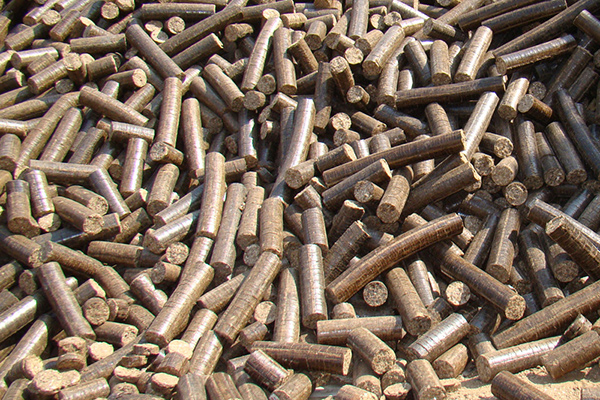
A briquette is a compressed block of biomass material, such as wood chips, sawdust, agricultural residues, or even paper, used as a fuel source.
The process of making briquettes involves compacting the biomass material under high pressure without the use of any binders. Briquettes are an eco-friendly and sustainable alternative to traditional fuels like coal and wood.
They are commonly used in biomass briquetting plants to produce energy-efficient briquettes for various applications. In the USA, biomass briquetting plants are gaining popularity due to their environmental benefits and cost-effectiveness.
Machine Used in the Briquetting Process
In the briquetting process, a biomass briquetting machine is utilized to compress biomass materials into solid briquettes.
These machines come in various types and sizes, ranging from small manual presses to large automated systems. The basic components of a briquetting machine include a Wood Chipper Machine / Crusher , Saw Dust Dryer Machine, and Briquette Machine.
The feeding system introduces the raw materials into the machine, where they are compressed under high pressure in the compression chamber.
Finally, the ejection system releases the formed briquettes. These machines play a crucial role in producing eco-friendly fuel alternatives and are essential in biomass briquetting plants.
Raw Materials Used
The raw materials for biomass briquettes vary widely but generally include any organic waste that can be dried and compressed. Common materials include:
- Agricultural residues like rice husks, bagasse, groundnut shells, and cotton stalks.
- Wood waste such as sawdust, wood chips, and tree bark.
- Industrial waste like paper waste and biomass from food processing.
- These materials are abundant and often considered waste, making them a cost-effective and sustainable option for briquette production.
Equipment for Biomass Briquette Plant in the USA
Biomass briquetting plants in the USA play a crucial role in converting organic waste into eco-friendly fuel sources. These plants utilize biomass briquetting machines to compress biomass materials into compact briquettes, which can be used as a renewable energy source.
These plants not only help in waste management but also contribute to reducing carbon emissions. Overall, biomass briquette plants in the USA are making significant strides towards a greener and more sustainable future.
When setting up a biomass briquette plant, several key pieces of equipment are essential for the process. These include a crusher, dryer, and briquette machine.
Crusher: The crusher is used to crush the raw materials into smaller particles, making it easier to process them further. It helps in reducing the size of the biomass materials, such as wood chips, sawdust, or agricultural residues, to a uniform size suitable for briquetting.
Dryer: The dryer plays a crucial role in reducing the moisture content of the biomass materials. Drying the raw materials is essential as it helps in improving the quality of the briquettes and ensures better combustion efficiency. It also prevents the growth of mold or bacteria in the briquettes.
Biomass Briquette Machine: The briquette machine is the heart of the biomass briquette plant. It compresses the dried biomass materials into solid briquettes of a specific shape and size. The machine applies high pressure to bind the materials together without the use of any additives, producing eco-friendly and sustainable fuel briquettes.
How Does a Biomass Briquette Press Machine Work?
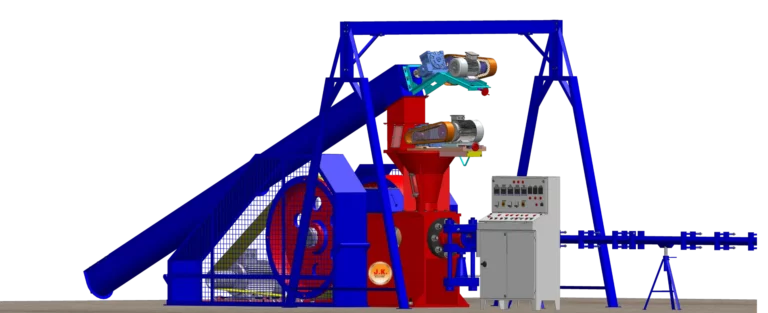
The biomass briquette press machine operates on a simple principle: applying high pressure to biomass material to compact it into a solid form.The process begins with the preparation of the raw material, which involves drying to reduce moisture content and grinding to create a uniform powder.
This powder is then fed into the briquette press machine, where it is compressed under high pressure, often with the help of a binding agent, to form dense briquettes.
How Does a Crusher Machine Work?
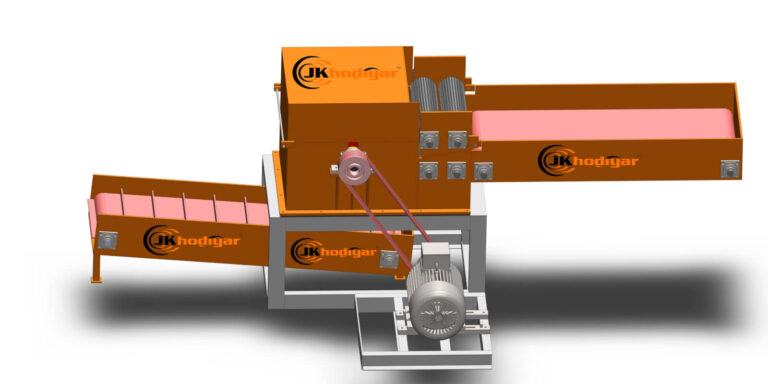
A crusher machine works by applying mechanical force to break down large materials into smaller pieces. The machine typically consists of a feed hopper, a crushing chamber, and a discharge conveyor.
When the material is fed into the hopper, it is crushed by the rotating blades or hammers inside the crushing chamber. The crushed material is then discharged through the conveyor for further processing or disposal.
How Does a Dryer Work?
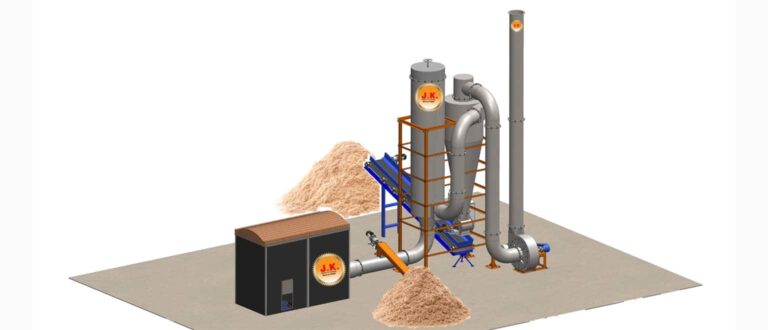
A briquetting dryer machine works by utilizing heat to remove moisture from biomass materials, such as sawdust or agricultural residues, before the biomass is compressed into briquettes.
The machine typically consists of a heating chamber where the material is exposed to controlled heat, allowing the moisture to evaporate. As the moisture evaporates, the material becomes drier and more suitable for the briquetting process.
Once the drying is complete, the dried biomass can then be fed into the briquetting machine for compression into solid fuel briquettes. This process ensures that the final briquettes have the right moisture content for efficient burning.
What is Coal Briquetting?
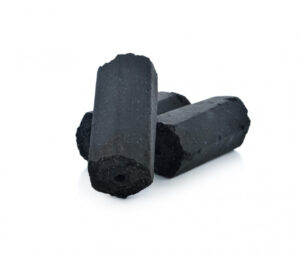
Coal briquetting is a process that involves converting coal dust and fines into compact, solid blocks of coal, known as briquettes, through the use of a coal briquetting machine. This process not only facilitates the handling and transportation of coal but also improves its combustion properties.
Coal Briquetting Process
The coal briquetting process typically involves several steps: collecting coal fines, mixing them with a binder, feeding the mixture into a coal briquetting machine, and then compressing the materials under high pressure to form coal briquettes.
The briquettes are then dried to reduce their moisture content and make them ready for use.
Raw Material Use in Coal Briquetting
The primary raw material for coal briquetting is coal fines or coal dust that would otherwise go to waste. Binders are also used in the process to ensure the coal particles adhere together during and after the briquetting process.
Coal Briquetting Advantages
Reduced Waste: Coal briquetting helps in utilizing coal fines that would otherwise be discarded as waste.
Improved Efficiency: Briquettes have a higher calorific value and burn more consistently than coal dust, leading to more efficient combustion.
Easier Handling and Transportation: Briquettes are easier to store, handle, and transport compared to loose coal dust.
Environmental Benefits: Briquetting coal reduces the pollution associated with coal dust emissions.
Comparison with Traditional Coal
Coal briquettes offer several advantages over traditional lump coal, including a more consistent size and shape, which leads to better combustion efficiency. They also produce less ash and are easier to handle and store, reducing the environmental impact associated with coal use.
Coal briquetting machine suppliers & manufacturers
Jay Khodiyar is renowned for its expertise in the field of briquetting, including coal briquetting machines. As a leading manufacturer, Jay Khodiyar offers briquette making machines that are durable, efficient, and capable of handling a wide range of briquetting needs.
JK’s coal briquetting machines are designed to produce high-density briquettes, ensuring maximum efficiency and performance.
Briquette machine for Sale in the USA
Jay Khodiyar is a prominent name in the biomass briquetting industry, known for its high-quality machinery and innovative solutions.As a manufacturer, Jay Khodiyar specializes in producing a wide range of biomass briquette press machines that cater to the diverse needs of its customers.
The company’s commitment to innovation, quality, and customer service has positioned it as a leader in the biomass briquetting sector. With a global presence, Jay Khodiyar serves customers across various countries, adapting its solutions to meet local needs and regulations.
Contact Us
We appreciate your interest in our products and our company. To ensure you the best follow-up, please apply correct contact details in the form below. In order for us to give you a customized reply, please be as detailed in your message, as possible.
